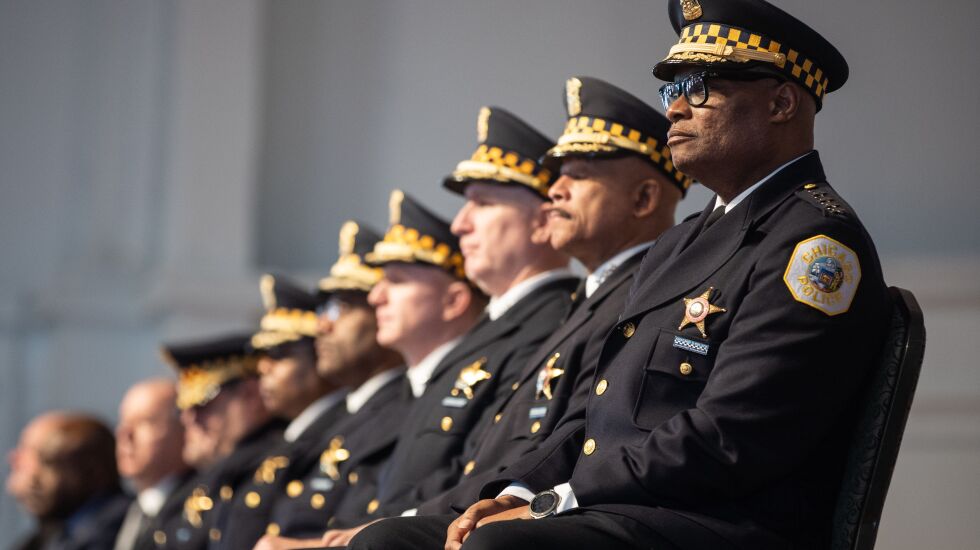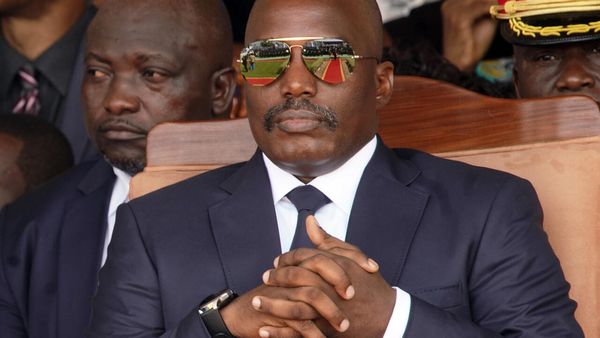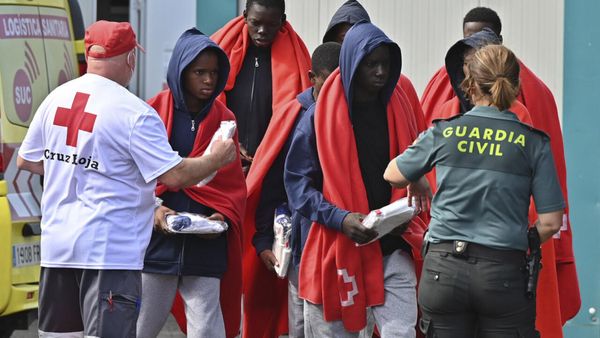
By now it is clear: suicides of police officers and the mental health challenges that lead to these tragedies are endemics that have shattered departments throughout the country.
More officers die by taking their own lives than in the line of duty, and police are 54% more likely to kill themselves than those who work in other professions, studies have shown.
Chicago is far from immune. A 2017 U.S. Department of Justice report revealed that the officer suicide rate in the city was 60% higher than the national law enforcement average.
This month so far, three Chicago police officers — Sgt. Andrew Dodba and Officers Durand Lee and Patricia Swank — died from self-inflicted gunshot wounds. Two of those officers just died over the weekend. So far this year, four officers have died by suicide.
The loss of these lives is a sobering reminder that the mental health needs of men and women in blue must remain at the forefront of the top brass’ priorities.
In the wake of the deaths, and critiques that overworked officers have their days off routinely cancelled, Supt. David Brown on Monday assured the public that providing help for officers who are struggling mentally is a matter that the department takes seriously.
Another mental health professional will be starting at the CPD on Friday, and two more will start next month, joining the cadre of 11 licensed clinicians who currently provide round-the-clock services to current and former employees and their families.
Eventually, the department will hire eight more counselors, ensuring that each of the 22 districts has a designated mental health professional, the Sun-Times’ Tom Schuba reported.
The department is also in the process of hiring a chief medical officer “as part of additional oversight in managing” the counseling plan, Brown said, adding that support is also available through an employee-assistance program and chaplain services.
That’s encouraging news when the lives of officers are at stake and could potentially unravel because of post traumatic stress disorder, anxiety, depression and other mental health challenges.
Officers who are dealing with these issues are prone to lash out physically at home and, when on the job, they are likely candidates to engage in misconduct, according to a 2021 report on officer wellness by the University of Chicago Crime Lab.
An officer suffering from an untreated mental health condition is certainly not fit to deal with a member of the public who may be going through a breakdown of their own.
“Discourages any sign of weakness”
It’s equally important to keep pushing the narrative that it is OK to not be OK — that it is just as heroic and brave for an officer to get counseling to save their own life as it is for them to save another’s. That message must be conveyed constantly to those who serve and protect.
Some officers believe that seeking counseling is a sign of weakness and worry that they could be ostracized if they do reach out, the 2017 Justice Department report found. A sergeant cited in the report conveyed that officers don’t want to report when their partners are in crisis, because they do not want to known as “rats.”
This stigma is what keeps 90% of officers from reaching out, according to a national study last year that analyzed police mental health and behaviors tied to it.
“Law enforcement culture discourages any sign of weakness, which includes asking for help,” as Jason Johnson, president of the Law Enforcement Legal Defense Fund and a former veteran police officer, wrote last year in an op-ed for the Sun-Times. “It has often failed to nurture the human needs of officers.”
If the shame around mental health — which Brown acknowledged Monday — isn’t eliminated from the CPD’s culture, the counseling and safeguards put in place will be for naught.
Alexa James, CEO of the National Alliance on Mental Illness Chicago and the department’s former senior adviser on wellness, also warned that canceling days off is detrimental to officers who deal with trauma day in and day out on the job.
Brown said reducing time off has been routine for decades and is needed to keep the streets safe. The shortage of officers hasn’t made the situation easier.
That’s a clear sign that more hiring, as well as better deployment strategies, are also a must. Relying on cancelled days off to keep the streets safe isn’t sustainable.
Cooperation and a focus on officers’ mental as well as physical health is something the city has to take seriously — for the well-being of officers, and for the city that relies on them to serve and protect.
The Sun-Times welcomes letters to the editor and op-eds. See our guidelines.







